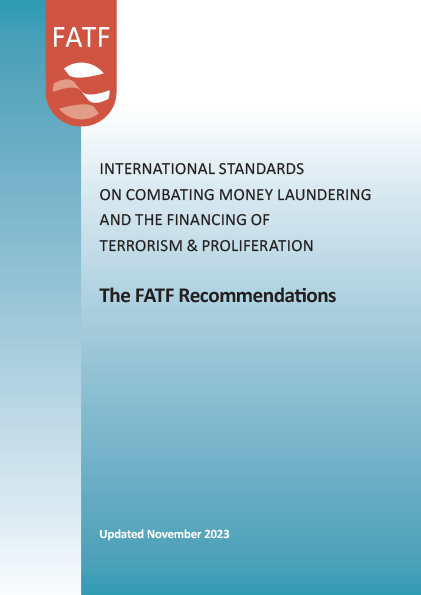40 Recommandations
FATF Recommendations
The FATF Recommendations provide a comprehensive framework of measures to help countries tackle illicit financial flows. These include a robust framework of laws, regulations and operational measures to ensure national authorities can take effective action to detect and disrupt financial flows that fuel crime and terrorism, and punish those responsible for illegal activity.
The 40 Recommendations are divided into seven distinct areas:
- AML/CFT Policies and coordination
- Money laundering and confiscation
- Terrorist financing and financing of proliferation
- Preventive measures
- Transparency and beneficial ownership of legal persons and arrangements
- Powers and responsibilities of competent authorities and other institutional measures
- International cooperation
The FATF Recommendations are also often referred to as the FATF Standards, which comprise the Recommendations themselves and their Interpretive Notes, together with the applicable definitions in the Glossary. As countries have diverse legal, administrative and operational frameworks and different financial systems, they should adapt the implementation of the Recommendations to their particular circumstances.
The cornerstone of the FATF Recommendations is the risk-based approach which emphasizes the need for countries to identify and understand the money laundering and terrorist financing risks they are exposed to. This ensures they can prioritise their resources to mitigate risks in the highest risk areas. The FATF continuously monitors new and evolving threats to the financial system and regularly updates and refines its Recommendations so that countries have up-to-date tools to go after criminals.
To help countries implement its Standards, the FATF also creates guidance and best practice papers on range of issues. The FATF regularly revises them to reflect the experience gained by public authorities and private sector over the years so that countries can benefit from this experience and effectively implement the FATF Recommendations in their own national context. This process can involve outreach to stakeholders or public consultations to ensure the usefulness of the final report.
More information :
https://www.fatf-gafi.org/en/topics/fatf-recommendations.html

